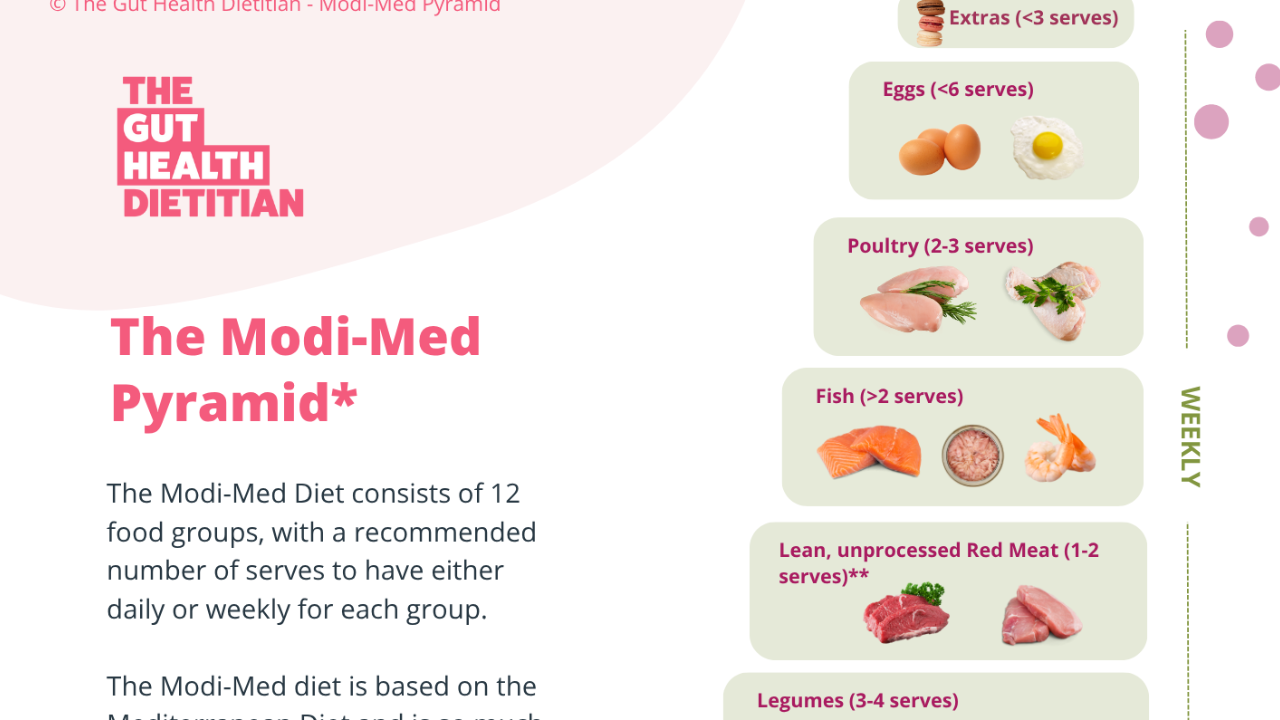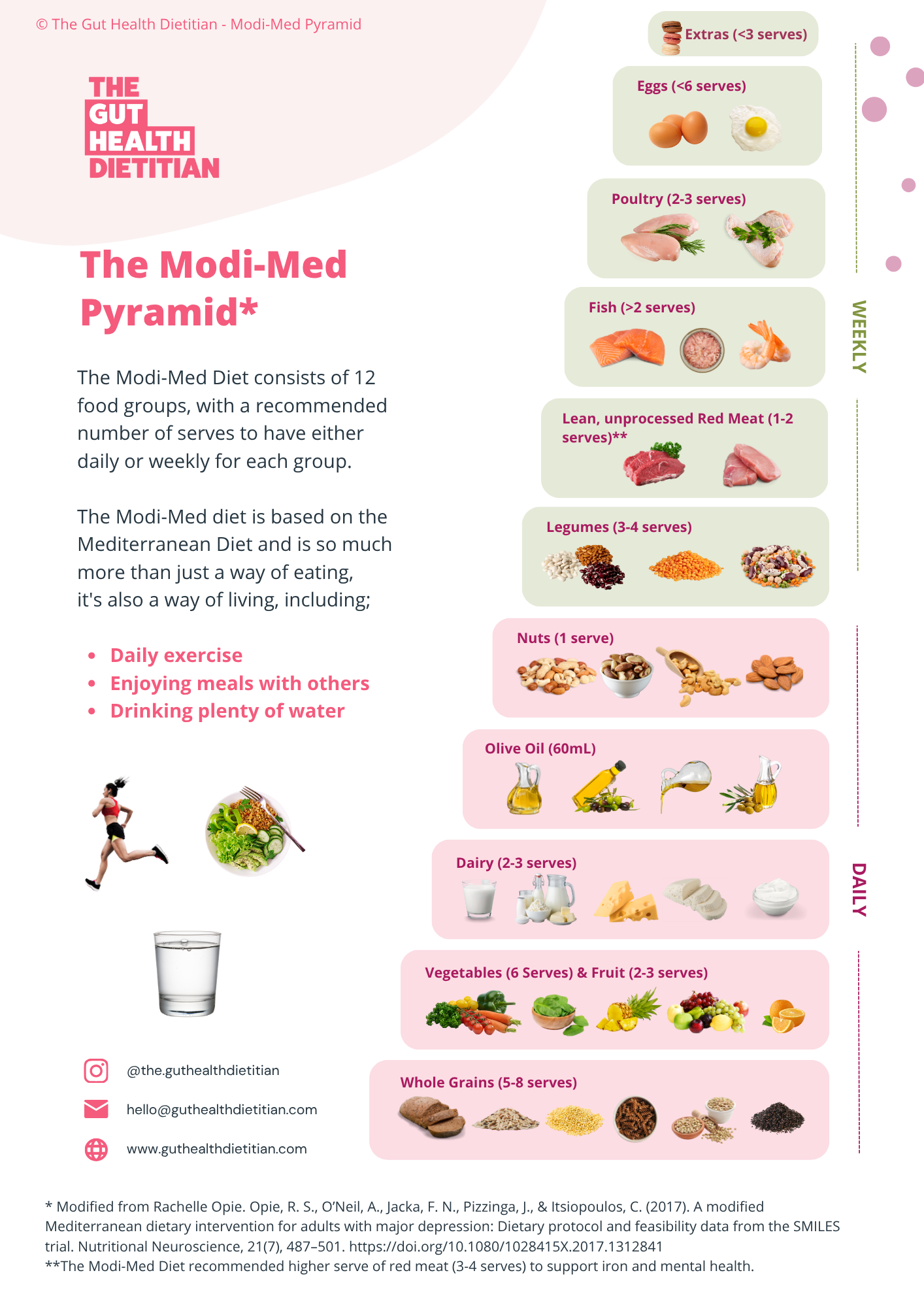The Mediterranean Diet Made Easy: 10 Principles to Follow

Here's how to nourish your gut, balance your hormones, and support your brain: the Mediterranean way.
More than just a “diet,” we often talk about the Mediterranean diet because it’s a way of life that celebrates whole foods, colour, community, and balance. It’s rich in polyphenols (plant compounds that help reduce inflammation and feed beneficial gut microbes), healthy fats that stabilise mood and hormones, and the kind of fibre diversity that keeps your gut microbiome thriving.
Why Mediterranean Diet Principles Work for Perimenopause
During perimenopause, your hormone levels drop, often bringing changes in digestion, mood, and metabolism. The Mediterranean Diet supports you on all fronts:
-
For your gut: a wide variety of plant fibres and polyphenols help feed your beneficial gut bacteria and support more comfortable digestion.
-
For your brain: omega-3 fats, B vitamins, and antioxidants help support your mood, memory, and focus.
- For your body: quality proteins (from both plant and animal sources), healthy fats and wholegrains help you maintain muscle, support metabolism and keep you feeling satisfied.
-
For your hormones: a consistent intake of healthy fats, phytonutrients and fibre to support hormone regulation.
The 10 Principles of the Mediterranean Diet to Apply to Your Own Eating Pattern
That's a lot of nutrients and compounds to think about, isn't it? That's why breaking it down into principles or habits to aim for each day or week can help you gradually move your diet toward a Mediterranean-style eating pattern.

Daily Focus
-
Fill half your plate with vegetables and fruits: aim for a rainbow to support fibre diversity. Aiming for 3 different colours on your plate is a great goal!
-
Choose whole grains like oats, barley, quinoa, or whole-wheat bread spread across the day
- Have 2-3 serves of dairy each day - this could include a glass of milk, a tub of yoghurt, or cheese (fermented dairy was regularly eaten as part of the Mediterranean Diet) Note: The Australian Dietary Guidelines suggest 4 serves for women 51-70 years for bone health.
-
Include extra virgin olive oil every day, roughly 60mL
-
Include a serve of nuts daily (such as a handful as a snack paired with a piece of fruit)
Weekly Focus
-
Fish & seafood: 2–3 servings a week for omega-3s.
-
Poultry: Aim for 2-3 times per week.
- Eggs: Limit to less than 6 per week.
-
Legumes: 3-4 servings weekly (beans, lentils, chickpeas). Tip: Try mixing in legumes with your favourite dishes, such as adding lentils to your bolognese or topping your salads with chickpeas.
-
Lean, unprocessed red meat: 1-2 serves per week (Note: The Modi-Med Diet allowed for 3-4 serves of unprocessed red meat per week as part of the Smiles Trial, citing benefits to iron, mental health and adherence).
A Final Word
The Mediterranean Diet isn’t about restriction: it’s about abundance, colour, and connection. By filling your plate with diverse plants, healthy fats, and mindful meals, you’re not just feeding your body, you’re feeding your gut, body and brain. So, as you plan your next week’s meals, think about this Mediterranean eating pattern: olive oil on your salad, oily fish, lentils in your soup, berries for dessert, and a slow, joyful pace to enjoy it all.
Stay connected with gut health news and updates!
Join our Free Weekly Newsletter to receive the latest gut health news, recipes and updates from our team.

